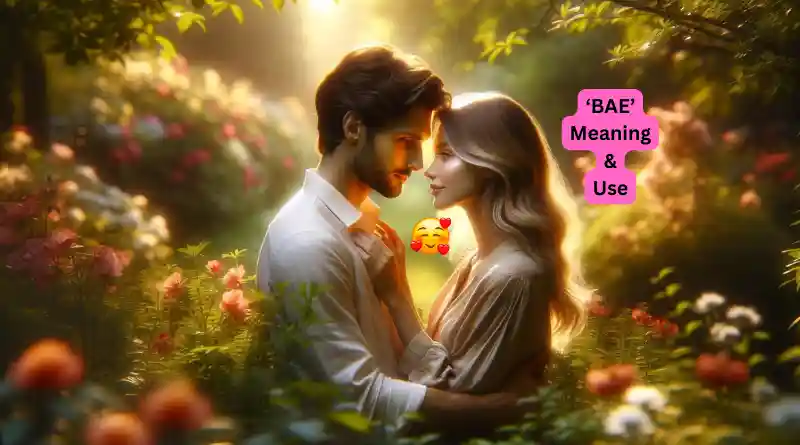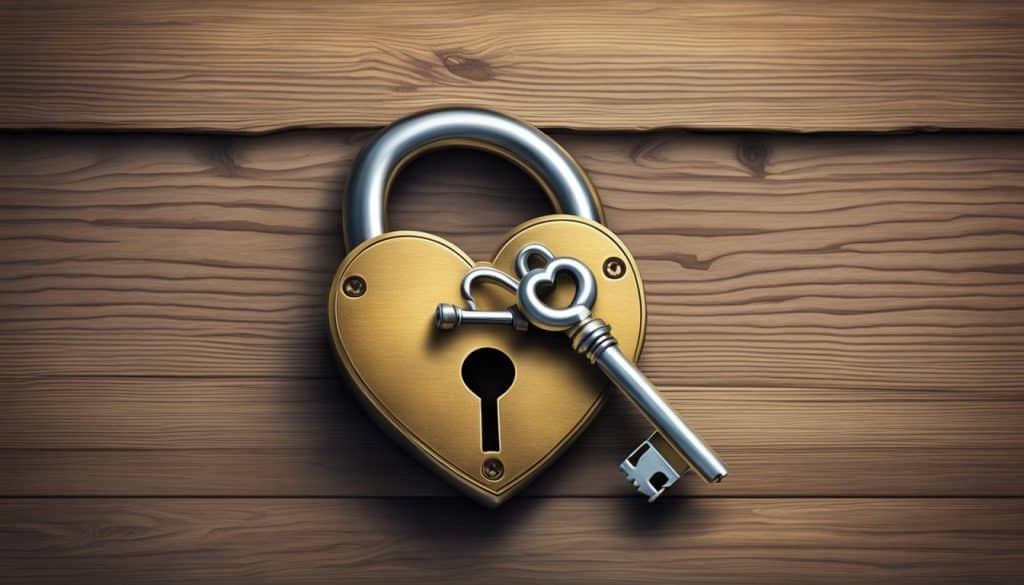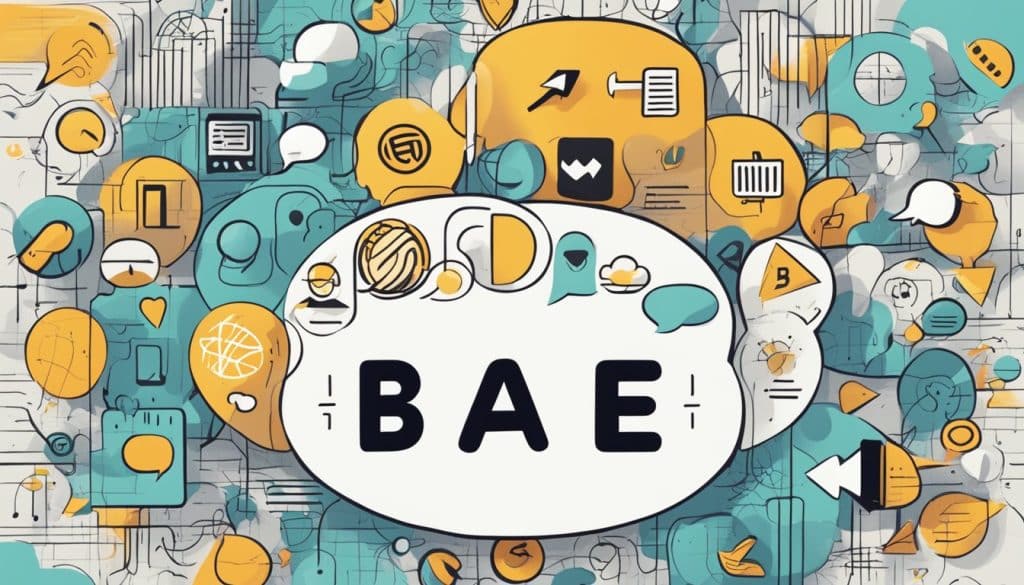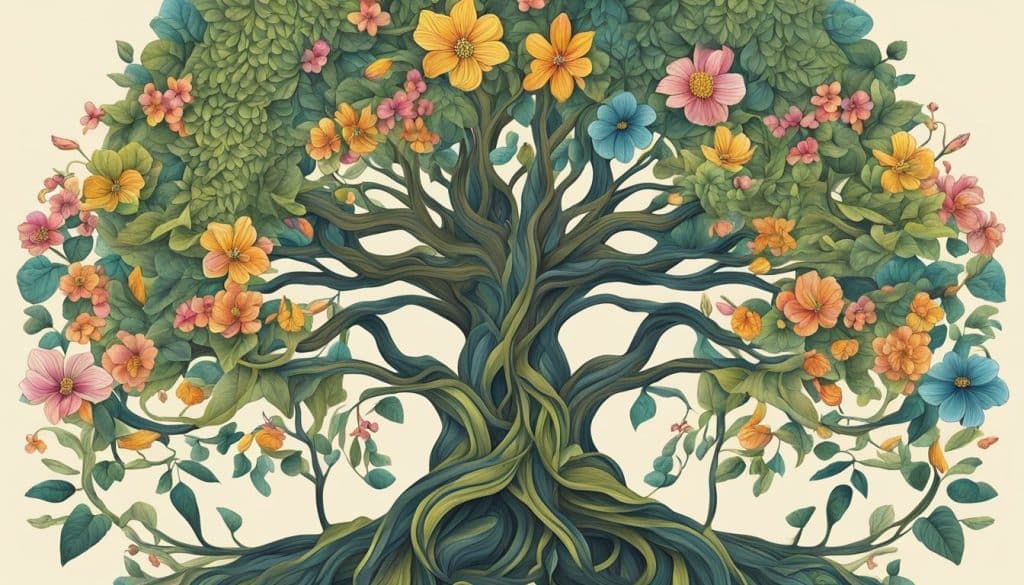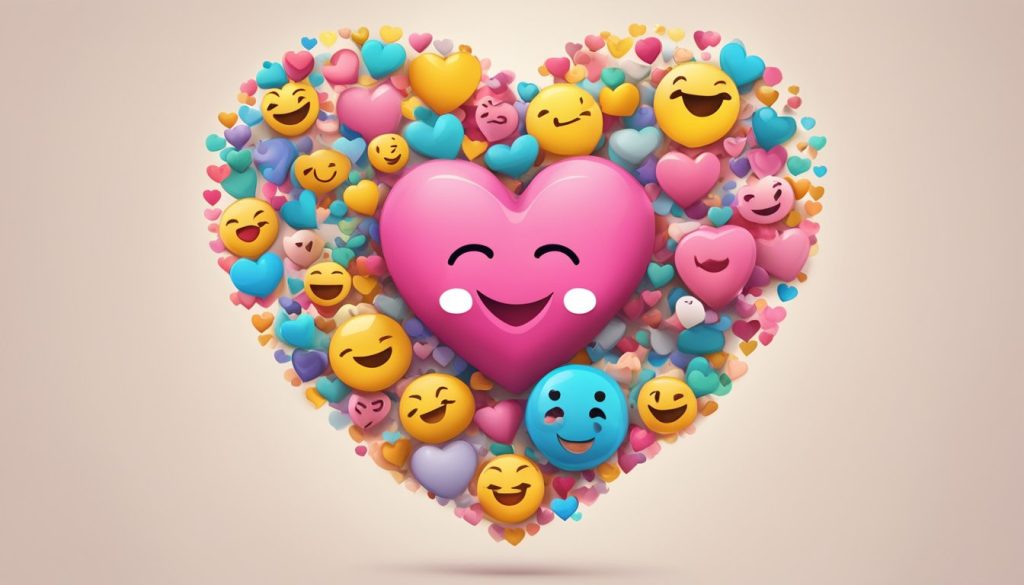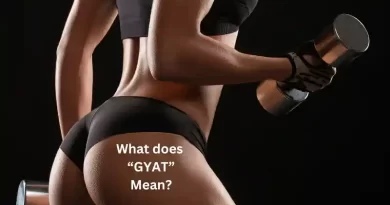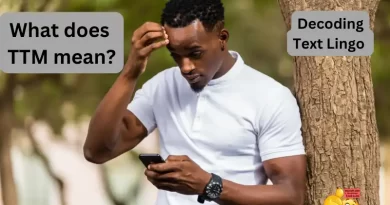‘BAE Meaning’: Unraveling the Origins and Usage of the Term
In the evolving lexicon of modern slang, the term “bae” has secured a place of prominence, especially within the landscape of social media and personal communication. Widely used as an acronym for “Before Anyone Else,” bae is an endearing term for a romantic partner, signifying their importance in the user’s life. Yet, this short and catchy phrase isn’t limited to a single interpretation; it has nuances that reflect both the context of its use and the dynamics of the relationships it describes.
Emerging from the ever-changing world of internet vernacular, bae’s use in relationships often transcends the digital realm and seeps into everyday language. Its flexibility as an affectionate nickname adds a layer of warmth and intimacy to interactions, underlining the personal connection between individuals. Moreover, the cultural impact of bae, as seen through its prevalence in music, entertainment, and online discourse, signifies its lasting impression on both language and communication.
Key Takeaways
- Bae is commonly recognized as an acronym for “Before Anyone Else” and is a term of endearment.
- Its usage transcends online communication and often refers to a romantic partner in everyday language.
- The term has notable cultural relevance, reflected in its widespread presence across various media platforms.
Etymology and Meaning
The phrase ‘BAE’ has evolved from casual slang to a widely recognized term of endearment, often utilized in American English. Its usage reflects affection and significant personal importance.
Origins of BAE
The term ‘BAE’, primarily spotted in slang and informal communication, is rooted in the abbreviation of ‘babe’ or ‘baby.’ These terms have long been condensed forms of expressing affection within English-speaking circles. Especially in the context of relationships, ‘baby’ and ‘babe’ signify a closeness or special bond, and ‘BAE’ captures this sense in a more modern, succinct fashion.
BAE as an Acronym
While commonly recognized as a sleek abbreviation, ‘BAE’ also gained traction as an acronym. The interpretation Before Anyone Else circulates as a popular albeit unofficial explanation for ‘BAE’s’ meaning. This rendition has been bolstered by platforms like Urban Dictionary, enhancing its visibility among younger demographics. Nevertheless, this acronymic interpretation is more of a creative backronym than an authentic origin. Despite its disputed etymological accuracy, the acronym resonates as it encapsulates the essence of what the term has come to convey—an individual’s most cherished person.
Usage in Relationships
The term “bae” has become an integral part of modern vocabulary, especially among younger couples, serving as a mark of affection and closeness. The usage of “bae” varies, often influenced by the nature of the relationship. It is important to consider the dynamics of its use in both romantic and non-romantic contexts.
Romantic Connotations
“Bae” often signifies a romantic partner, functioning similarly to terms like “baby” or “boo.” It’s a step beyond calling someone a boyfriend or girlfriend, adding an extra layer of endearment. This term aptly emphasizes exclusivity and can carry the weight of terms like “spouse” when used seriously in committed relationships. Its origin, linked to the phrase “before anyone else,” highlights the special stance a significant other holds. Although its use might suggest a relationship is fresh and vibrant, implying excitement, it doesn’t necessarily define the relationship’s depth. For instance, young couples might use “bae” to describe their bond as fun and modern.
Example:
- She called her boyfriend “bae” when she introduced him to her friends.
Platonic and Family Usage
However, “bae” isn’t exclusive to romantic scenarios. It’s also woven into platonic relationships. This versatility extends the term to encompass a best friend or a cherished family member, akin to the traditional usage of “babe.” In familial settings, “bae” may serve as a term of affection towards a pet, symbolizing their important place in the family unit. It’s crucial to consider context when “bae” is used; the relationship’s nature typically becomes clear through additional conversation or interaction cues.
Example:
- During Thanksgiving, she affectionately referred to her little brother as “bae,” demonstrating their tight-knit sibling bond.
Cultural Impact and Media
As a term that resonates with many, the influence of bae extends beyond personal interactions into the larger fabric of media and pop culture. This section explores the prevalence of bae within social media and the entertainment industry.
Social Media Influence
Social media catapulted bae into the limelight, where tweets and posts often included the term as an endearing reference to significant others. On platforms like Twitter, it’s not just everyday users but also celebrities who sprinkle their messages with bae, thereby amplifying its reach. Additionally, bae sometimes doubles as an acronym for ‘Before Anyone Else’, adding to its significance on social media where prioritizing relationships is common.
The term has been subject to various interpretations and misinterpretations on social media, leading to discussions about its correct use. YouTube is another hub where bae has had substantial coverage, with videos explaining the term, its usage, and reviewing its presence in popular culture.
Music and Entertainment
In the realm of music and entertainment, bae has found its way into lyrics and titles, echoing its relevance and recognition in society. Pharrell Williams, a prominent figure in hip-hop, released the catchy song “Come Get It Bae” which not only uses bae in the title but helped in broadcasting the term to a global audience. This song and others like it have reinforced the usage of bae in mainstream media.
Moreover, hip-hop music, known for its significant influence on slang term evolution, often incorporates bae in its lyrics, thereby endorsing its popularity. As a result, bae crosses the threshold from being mere slang to becoming a staple in artistic expressions and creative efforts within mainstream outlets.
Language and Communication
In the realm of texting and online interactions, “bae” has become a staple term, reflecting a broader trend of language evolution. It underscores how informal slang words are crafted and gain popularity, particularly among American English speakers.
Texting and Online Slang
Text messages often serve as the birthplace for many colloquial phrases. “Bae,” typically used in informal contexts, is a prime example of such slang. Originally, this term likely emerged from the depths of African American Vernacular English (AAVE), experiencing a surge in usage among young individuals in the United States. In today’s digital vernacular, “bae” has transcended its roots to become a mainstream term of affection, often signifying a significant other or someone highly regarded. The ascent of “bae” into everyday language showcases its adhesive power, especially in text conversations where brevity is prized.
Evolution in Modern Language
Language continually adapts, evolving to match the dynamism of its speakers. “Bae,” once confined to a niche audience, now permeates various sectors of communication. This term illustrates the ever-changing landscape of American English, infused with new expressions from the Internet and social media. As these platforms drive innovation in language, “bae” sits at the forefront of this modern lexicon, capturing the essence of cultural shifts and the malleability of communication.
The adoption of “bae” in everyday conversation also symbolizes a significant transformation within modern language. Its journey from AAVE to general acceptance offers insight into the mechanisms of linguistic development—the blend of cultural influence, social media trends, and the demand for concise, impactful communication.
As “bae” weaves into the fabric of informal language, it reflects the broader narrative of how expressions evolve and how teen culture, in particular, can serve as a catalyst for widespread linguistic change.
Interpretations and Variations
The slang term ‘bae’ has evolved through usage and geography, taking on various interpretations that reflect cultural nuances. Its journey from a term of endearment to one with multiple meanings and adaptations showcases the fluid nature of language.
Different Meanings of BAE
Originally, ‘bae’ appeared in African American Vernacular English (AAVE) and rapidly gained traction as a mainstream slang term. Bae can stand in for endearing words like babe or baby, signifying a similar level of intimacy and affection towards a romantic partner. While often regarded as an acronym for “Before Anyone Else”, this explanation may be more of a backronym rather than the term’s true origin.
However, ‘bae’ isn’t exclusively reserved for significant others. It can also extend to close friends, akin to the term boo, reflecting a sense of camaraderie and love that isn’t necessarily romantic. “Hey, you’re my bae,” could mean “You are a very special friend to me,” showcasing the term’s versatility.
Global Adaptation
Across the globe, ‘bae’ has been adopted and adapted within various linguistic landscapes, taking on unique connotations within different cultures. In some instances, it’s sprinkled into conversation to add a trendy, weird twist on traditional terms of endearment like love. It’s not unheard of for someone in the UK to refer to their partner affectionately as ‘bae’, interchanging it with timeless pet names like darling or sweetheart.
This global proliferation has also led to ‘bae’ being utilized in marketing and branding efforts, capitalizing on its cool factor to relate to a younger demographic that appreciates its fresh, skin-deep significance. The term has notably stood the test of time in the volatile world of slang, maintaining relevance even as other jargons fade away into obscurity.
With these adaptations, ‘bae’ is a prime example of how a slang term can weave itself into the fabric of various cultures, each interpreting and using the term in a way that resonates with their societal norms and linguistic preferences.
Related Terms and Expressions
In the evolving landscape of language, slang terms and expressions of endearment like “bae” frequently bubble up in our daily conversations. These colloquialisms are more than mere words; they represent the way affection is communicated across diverse groups.
Similar Terms in Slang
Babe: Often interchanged with bae, babe is another slang term that has stood the test of time. It’s a classic term of endearment that’s been used to refer to someone special, typically a romantic partner.
- Boo: Similar in use to bae, boo is a term of affection used to refer to one’s boyfriend or girlfriend. It’s less formal than the traditional baby but carries a similar level of intimacy.
[List of Similar Slang Terms]
- Bae
- Babe
- Boo
- Baby
Expressions of Endearment
In relationships, terms of endearment like “bae” are more than cute nicknames; they signify intimacy and a bond between people. Expressions like these vary across cultures but are universal in their intent—to show love and affection.
- Bae: At times thought to be an acronym for “before anyone else”, bae captures the essence of prioritizing someone uniquely significant.
- Baby: Perhaps one of the oldest and most widespread expressions of endearment, baby evokes a sense of caring and protection akin to that of an actual infant.
In summary, while “bae” and its related terms might be rooted in slang, they hold powerful places as expressions of endearment in the modern lexicon. They enable individuals to express their deep connections in a casual yet meaningful way.
Using Emojis with “Bae”
In the colorful and expressive universe of emojis, integrating these tiny symbols with the term “bae” elevates conversations, adding layers of emotion and sentiment without the need for words. Let’s dive into how Julia, a blogger and partner here at mojiedit, and an emoji enthusiast uses emojis to add spice to her chats with her “bae.”
The Language of Love and Emojis
Julia’s story is one that many of us can relate to. In her world, communication with her bae transcends the mundane; it’s a canvas for creativity. For Julia, emojis are not just adornments; they are a fundamental part of the narrative. When she texts her bae, every message is punctuated with vibrant symbols that encapsulate her feelings. A simple “Good morning, bae 😘” is transformed into a heartfelt gesture, the kiss emoji sealing her affection.
📅 Everyday Emojis for Julia and Her Bae
On a day filled with the usual hustle, Julia relies on emojis to keep the connection with her bae lively. A “Missing you 🥺💖” text midday conveys longing and love, the sparkling heart adding a twinkle to the sentiment. Julia’s bae responds with “Can’t wait to see you! 🏃♂️💨”, the symbols capturing the eagerness and motion towards their next meeting. This playful exchange showcases how emojis serve as extensions of their emotions, bridging distances with shared symbols.
🎉 Celebratory Emojis: Marking Milestones
For special occasions my friend Julia gets creative. Anniversaries are marked with “Happy Anniversary, bae! 🎉❤️👩❤️👨”, a concoction of emojis celebrating love and togetherness. Birthdays are no less extravagant, with messages like “Happy Birthday, bae! 🎂🎁🥳” flooding her bae’s inbox, the emojis echoing the festivity of the day.
😂 The Lighter Side: Humor and Emojis
But it’s not all hearts and flowers. Julia and her bae share a love for humor, often sending each other messages that are light-hearted and playful. A “Guess what happened today 😂🐿️” from Julia might lead to a hilarious exchange about a squirrel encounter, the emojis adding a visual punchline to the story.
👉 Emojis as a Language of Love
Through Julia’s experiences, we see how emojis intertwined with “bae” enrich communication, making it vivid, emotional, and personal. In her interactions, emojis are more than just fun additions; they are a language of their own, conveying nuances and emotions that words alone might not capture. For Julia and her bae, emojis are the spice of their digital dialogues, a testament to the evolving language of love in the digital age.
In essence, emojis offer a palette for expression, allowing us to communicate complex emotions in a simple, visual format. Whether it’s love, laughter, or anything in between, emojis have the power to transform our digital conversations, making every message to our “bae” more colorful and meaningful.
Educational Acronyms
Educational acronyms serve as shorthand for various degrees and certifications within the academic community. Each abbreviation signifies a specific course of study or level of achievement.
Academic Degrees
Bachelor of Agricultural Engineering (BAE)
She delves into the world of agriculture with a focus on engineering principles. A BAE degree equips students with the technical skills to address agricultural challenges, like sustainable farming practices and efficient food production systems.
Bachelor of Architectural Engineering (BAE)
This specialized engineering pathway intertwines the creation and design of buildings. A degree in Bachelor of Architectural Engineering emphasizes the integration of construction technology with architectural design, preparing graduates to innovate within the built environment.
Bachelor of Arts in Education (BAE)
For those passionate about shaping young minds, a Bachelor of Arts in Education offers an in-depth understanding of educational theories, teaching methodologies, and instructional planning. This degree is a foundation for future educators looking to inspire in classrooms.
Conclusion
In the realm of expressions of affection, “bae” has emerged as a prominent term, particularly among young people. Bae essentially represents a special place in one’s heart, typically signifying a romantic partner. Interestingly, it doubles as both an acronym for “Before Anyone Else” and a shortened version of “babe” or “baby.” These dual origins reflect its versatility within modern language.
She finds that when someone refers to their bae, they’re not just using a trendy slang; they’re also conveying deep affection and highest regard. It’s a term that’s inclusive of love and support, extending beyond just a label to a statement of priority and significance in one’s life.
The definition of “bae” has captured the interest of linguists and cultural commentators alike. It underscores the creative ways in which language evolves, intertwining with culture and technology. Bae is an exemplar of how terms can encapsulate contemporary social dynamics and relationships.
Therefore, its prevalence in songs, on social media, and among peer conversations is a testament to its robust adoption. It’s intriguing to witness how a simple word can be so reflective of culture and emotion, holding a mirror to the values of a generation.
BAE Meaning – Frequently Asked Questions and Answers
In romantic relationships, “bae” is a term of affection towards a significant other. It often implies that the person holds a special place, suggesting priority over others. The phrase “before anyone else” encapsulates this sentiment, defining “bae” as more than a mere nickname.
When used informally, “bae” is a casual way of addressing someone you care about. It’s interwoven into daily speech, and its interpretation leans towards a light-hearted, yet endearing acknowledgment of someone’s presence in your life, often without the weight of serious commitment.
Yes, “bae” can extend to signify a close friend. It’s a flexible term showing a high degree of fondness, likening a friend’s importance to that of a romantic partner without necessarily implying romance. It underscores a companion’s value in a relaxed, yet affectionate manner.
“Bae” can be applied within family circles or toward intimate partners to express a deep bond. It’s particularly common among younger generations and may be aimed at family members to indicate their unique importance, akin to a term of endearment otherwise reserved for a romantic interest.
Both “bae” and “boo” are affectionate terms, although “boo” is an older term with a similar feel. While “bae” connects to the idea of being first in someone’s heart, “boo” is more traditional, evoking a sense of tenderness without the specificity that “bae” implies. The usage can be quite interchangeable in modern dialogue, each embodying warm feelings for someone dear.

